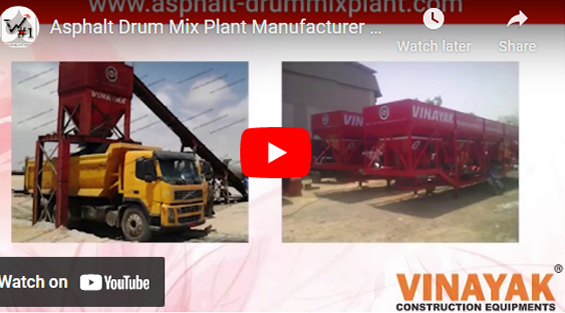Feature |
Asphalt Batch Plant |
Asphalt Drum Plant |
Operation |
Produces asphalt in batches |
Produces asphalt continuously in a single drum |
Mixing Process |
Mixing of aggregates, binder, and filler in batches |
Continuous mixing of aggregates, binder, and filler |
Production Capacity |
Generally lower capacity, suitable for smaller projects |
Generally higher capacity, suitable for large projects |
Installation |
More modular, easier to install and relocate |
More complex installation, usually stationary |
Control |
Greater control over mix specifications and quality |
Limited control over mix properties |
Flexibility |
Offers flexibility in producing different mixes |
Less flexibility, limited to certain types of mixes |
Energy Consumption |
Can be more energy efficient depending on design |
Typically consumes more energy due to continuous operation |
Cost |
Initial cost may be lower |
Initial cost may be higher |
Maintenance |
Easier maintenance due to modular design |
More complex maintenance due to continuous operation |
Environmental Impact |
Can be designed for lower emissions |
Continuous operation may lead to higher emissions |
Mixing Time |
Mixing time is usually longer due to batching process |
Mixing time is shorter as it is continuous |
Quality Control |
Batch-to-batch quality control easier to implement |
Continuous quality monitoring required |
Material Handling |
Requires less complex material handling systems |
More complex material handling due to continuous flow |
Space Requirement |
Generally requires less space for operation and storage |
Requires more space due to longer drum design |



